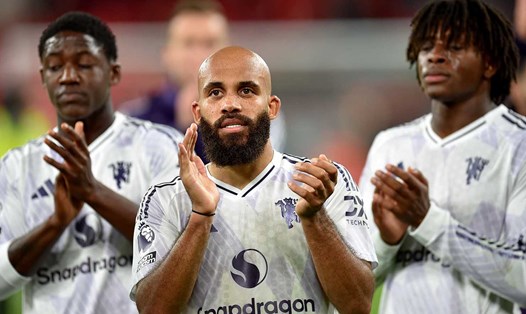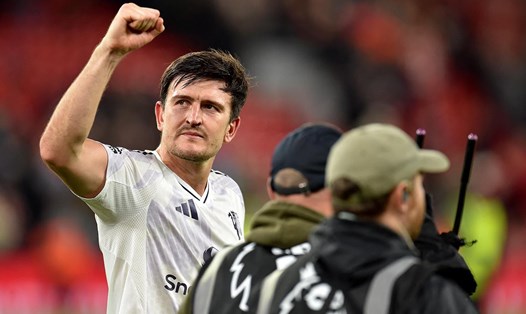When long balls become tactical weapons
In the context of English teams increasingly favoring the whole-field approach, many coaches have begun to move towards more direct play. However, it is only effective if implemented for purpose. If they play long ball continuously but are not ready for "twice-ball" moves, it is no different than giving control of the game to the opponent.
Against Liverpool, Senne Lammens only had 8 accurate long passes but that was not a problem as Man United were perfectly prepared for the second ball dispute situation. Amorim and his students understood that winning in the second ball was the key to penetrating the opponent's high pressing defense.
Bryan Mbeumo is the pioneer for "double-edge" situations
In the first half, Man United focused on exploiting the right wing, where Bryan Mbeumo was often the destination of long balls. Amorim's intention was clear, forcing Virgil van Dijk or Milos Kerkez to rush into aerial disputes with Mbeumo, while Matheus Cunha retreated deep to wait for the second ball back, then quickly changed direction to Amad Diallo.
In such a situation, Kerkez headed the ball away but Bruno Fernandes immediately approached, won in a "double" situation and then quickly passed it to Amad. At this time, Man United's right wing was completely empty because Mbeumo had pulled Kerkez out of the defensive position.
Another situation was when Van Dijk was dragged up to dispute with Mbeumo, forcing Kerkez to retreat, creating space for Amad. When M.U won the second ball, they immediately exploited this wing with the speed and handling ability of the Ivorian player.

A direct hit opened the scoring
It was this formula that brought Man United the first goal. After a series of high-profile performances between Van Dijk and Harry Maguire, Bruno Fernandes won the second ball situation, then passed it to Amad.
Kerkez had to cover the space behind Van Dijk, unable to get close. Amad had time to observe, made a perfect pass for Mbeumo to escape, and finished to open the score for the away team. A goal was perfectly built with the tactical intention of "long ball - second ball - quickly changing direction".
Ruben Amorim changed the tempo in the second half
After the break, Man United somewhat lost their composure and let Liverpool organize more dangerous counter-attacks. However, it is worth noting that most of the Reds' chances come from the opponent's mistakes or quick counter-attacks, not because the visitors lost in "twice-on-one" situations.
The appearance of Benjamin Sesko has helped United increase their ability to compete in the air. At this time, Lammens began to direct many long balls to the left wing, taking advantage of the height and wall-working ability of the Slovenia striker.
The Sesko - Cunha duo became the focus of new tactics when Sesko attracted the attention of Konate and Szoboszlai, while Cunha waited to regain the second ball and open counter-attacks.
From "double" to the decisive goal
Although they did not directly score from long balls in the second half, Man United still benefited indirectly. The situation that led to Maguire's decisive 2-1 corner kick originated from Sesko and Cunha occupying space, regaining the ball after a dispute in midfield.
Cunha quickly passed Sesko, the shot was then blocked, leading to a corner kick. From there, Maguire jumped high to head the ball home to victory after receiving a very accurate cross from Bruno.

When double-tone football is a philosophy, not just luck
Speaking after the match, goalkeeper Senne Lammens revealed: "We know that playing short at Anfield is very difficult. Therefore, from the beginning, the whole team agreed to use many long passes and focus on "the second ball". Even without a real striker, we still did very well in the challenge and that brought the first goal".
In the context of the Premier League increasingly fierce in pressing, the "long ball - second ball" tactic is no longer a symbol of the classic defensive style of play. When deployed in an organized manner, it becomes a sharp tactical tool, especially against high-level pressing opponents like Liverpool.
Ruben Amorim has shown his strategic flexibility when he is willing to ignore formal beauty to aim for maximum efficiency. At Anfield last weekend, such tricky plays, what seemed very trivial, were the foundation for Man United's convincing victory.











